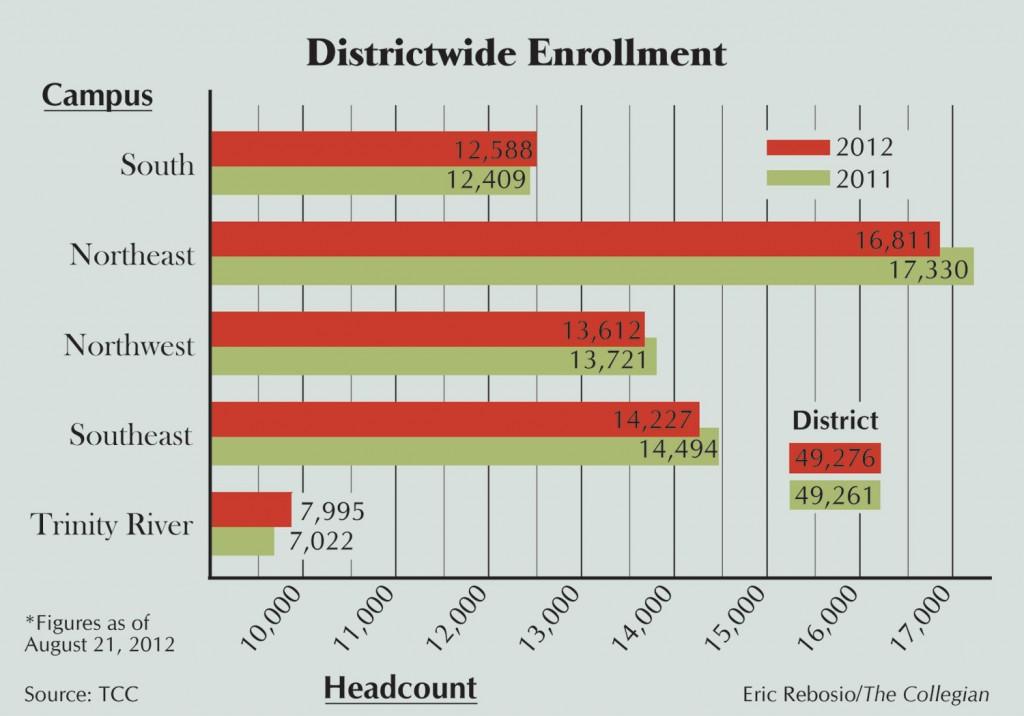By Taylor Green/reporter
Many students come to TCC because of its lower cost and its position as a transitional college, but they leave with more.
“I decided to come to TCC so that I could pay for college myself and not have to rely on my parents,” student Zach Holley said. “TCC has prepared me well enough that I can go on to a university and do fine.”
Whether a young teen just exiting high school or a mid-20s jailer like Carol Elliott, TCC is a less expensive way to get proper training.
“I didn’t want to take out student loans for all of my education. TCC is affordable enough,” Elliott said. “And I think the professors here have prepared me enough to transfer to UTA next year.”
The unemployment rate for college graduates is half of what it is for non-high school graduates. That idea led former postal manager Grace Dormier to return to school and make a better life for herself.
“I chose to attend TCC because the tuition is affordable. I was tired of the bureaucracy at the post office, and I want to become a teacher,” she said. “I have been satisfied so far with the instructors at TCC. [Spring was] my first semester, and so far, I have been prepared sufficiently to transfer to a state university to get my education degree.”
Many students have completed their time at TCC and are thankful for the chance it gave them.
Sophomore Samantha Shaw has taken courses at both TCC and the University of Texas at Arlington.
“TCC went a little easy on its students, but I was prepared,” she said. “There are obviously some aspects that are different at a university, but, for the most part, I think TCC adequately prepares its students.”
From an instructor’s point of view, South Spanish instructor Felipe Dobarganes said he is part of the change on campus and his students will leave his classroom prepared for the next step.
“[My] class is taught at a fast pace, but I feel that my students learn quickly and sufficiently,” he said. “When it comes to testing and their skill work, they know what they are doing.”
Dobarganes is confident his technique helps his students get the proper education and training for their money.
“Spanish II is a big transition from Spanish I, but several of my students have reported back to me and said they were prepared,” he said. “I think the online assignments help students get sufficient practice and help aid in the learning process, which is why I stress the online book so much.”
South philosophy and religion professor Hap Lyda believes the dynamics of his class has prepared his students as well.
“It is difficult with religion subjects and topics because you don’t want to offend or interfere. I let my students discuss among themselves a majority of the time because that’s real life. Not everyone is going to agree on all aspects,” he said.
Lyda likes the freedom of a college.
“I feel that in high school, teachers are restricted on what is said in their classes, but with colleges and universities, we have a little more room,” he said.
Lyda also happens to have a unique source material for his courses, one that he is quite familiar with.
“I teach out of a book that I wrote, so it makes it very easy and helpful to teach from,” he said. “I, obviously, know all of the material, so I can teach with confidence.”























